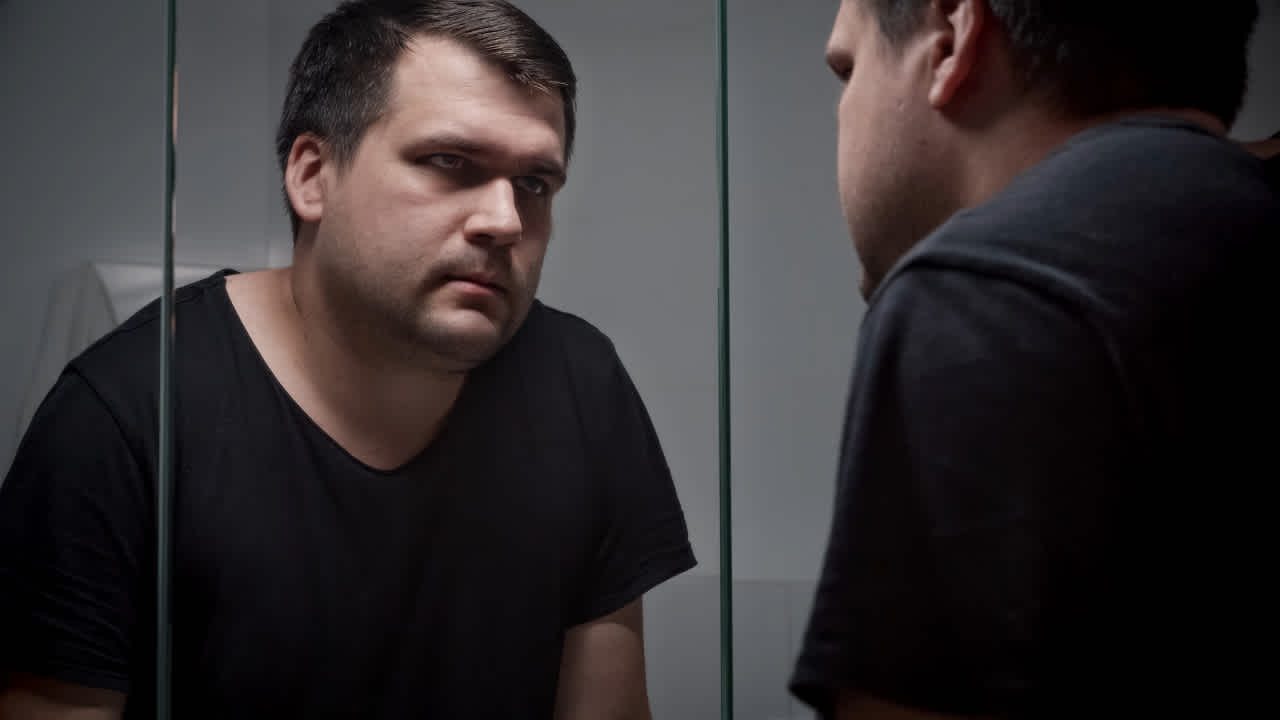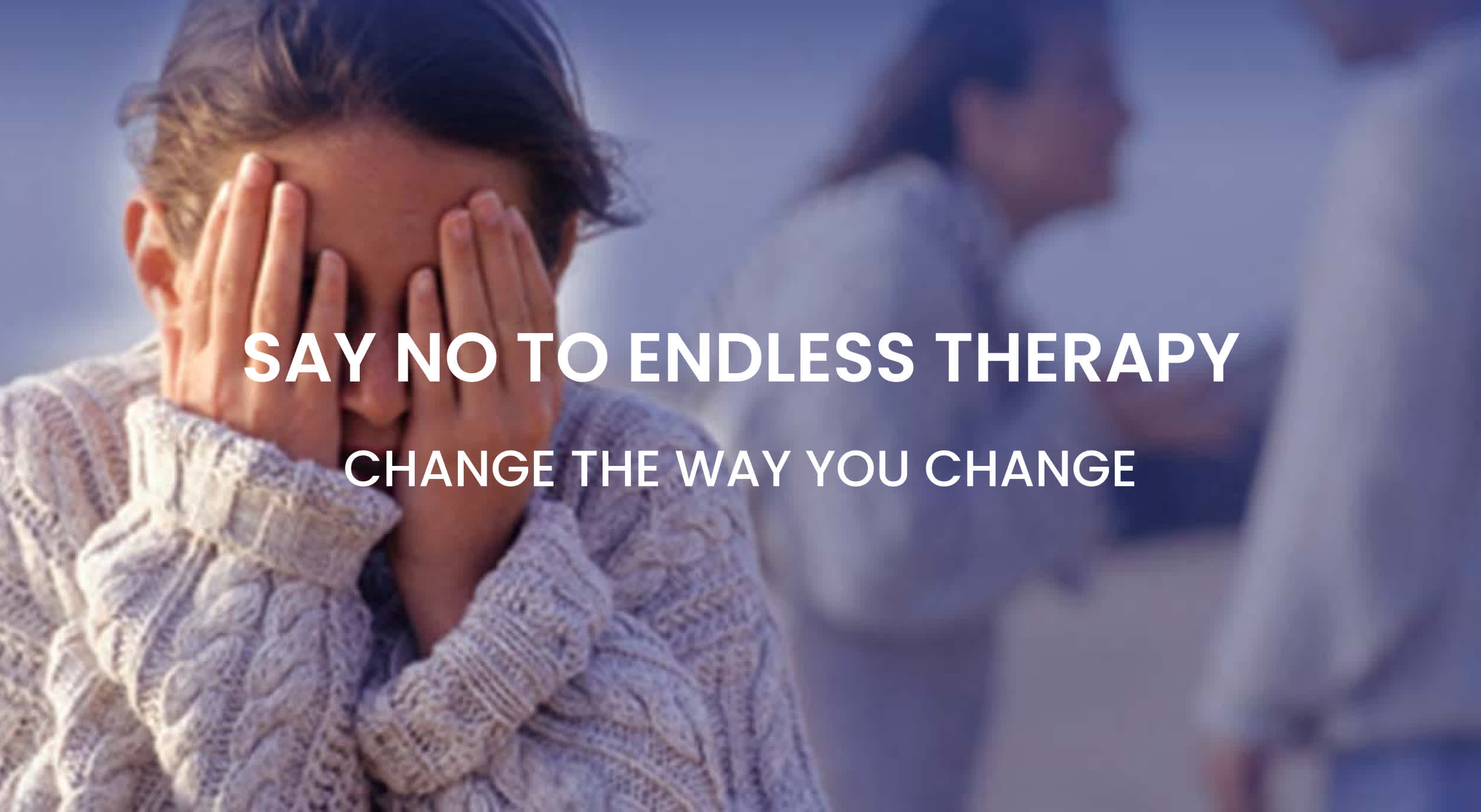Distorted Self-Image

Although most people take huge pride in their looks and acknowledge the magnificence of their bodies. Some believe they are not the best representation of themselves and wish to change that. These individuals perceive their bodies differently than the rest of the universe.
People with distorted self-images always have a negative perception of themselves. They have a radically different personal image from reality since their mind affects their thoughts in unpredictable ways. This could have a detrimental effect on their physical and psychological health, affecting their daily lives.
Individuals who have a distorted self-image are more likely to be dissatisfied. It can cause them to have a poor social life, low self-confidence, and negative moods. They can also suffer from body dysmorphia or eating disorders 1. Others also experience borderline personality disorder due to their negative self-image [2].
What is a Distorted Self-Image?
Typically, people think self-image is simply what they see in the mirror, but it is much more. Self-image relates to how people see themselves on a larger scale, both inwardly and outwardly.
On the other hand, a distorted self-image occurs when a person perceives themselves to be inaccurate in terms of physical appearance, values, intelligence, or talents. People with a distorted self-image find it hard to view themselves as others perceive them.
Distorted self-image tends to focus more on how people view their bodies. As a result, body image is the most usually distorted aspect. People with distorted self-images are prone to anxiety, depression, sadness, and extreme shyness.
Individuals with distorted self-images spend much time gazing at or worrying about their appearance. And because of BDD condition, they are also susceptible to compulsive behaviors such as constantly staring in the mirror, attempting to make themselves appear better, or trying to compare themselves to others [3].
How Many People are Affected By a Distorted Self-Image?
Distorted self-image has affected close to 40% of women and about 20% of men [4]. The numbers remain relatively constant across age, gender, race, and marital status. A negative self-image can emerge at an unexpectedly young age. That is, by the time children reach the age of adolescence, more than 50.0% of females and 25.9% of males are dissatisfied with their bodies [5].
What Causes Distorted Self-Image?
Several factors can contribute to distorted self-image, including 1 :
1. Body Mass Index (BMI)
Some people with BMI feel severely overweight because their BMI exceeds the healthy range. Those on the lower end of the scale may perceive they are too thin, leading to distorted self-image and, in particular, BDD.
2. Negative Self-Perception or Self-doubt
Negative self-perception can lead to a twisted self-image, especially in people who compare themselves to others based on their appearance, body weight, skin, and hair.
This is a prevalent cause in young women because they are excessively preoccupied with how they look to others and how others perceive them.
Individuals who create unfavorable perceptions about themselves avoid accepting the reality about themselves and instead become highly uncomfortable with how they appear. Disgusted with their appearance and unhappy with themselves, they will go to any extent, even to extremes, to comply with the existing high beauty standards and appearance.
Failures have led to distorted self-image in some circumstances. This is because some people do not acknowledge failure. They feel ashamed, embarrassed, and painful, and they start to question their capability to succeed.
Furthermore, this becomes more problematic when people compare themselves to others who have achieved while they have not. As a result, they attempt to build low self-esteem, which leads to a negative self-image.
3. Family Perception
Most parents are unaware that their children are susceptible to what they remark about them. At that age, children take the definitions of other people as their reality. Therefore, children who grow up in an environment where they are continuously criticized or subjected to judgmental remarks about their bodies are more likely to acquire a negative self-image.
It is also essential to recognize that distorted self-image in children worsens when their bodies change during puberty. And as they grow older, they bear the burden of this distorted perception until they discover it or someone else helps them rectify it.
Relationship issues between parents and children have also contributed to increased body image dissatisfaction.
4. Public Opinions
People can create a negative opinion about themselves based on what they encounter and hear. For instance, social media, music videos, and even movies show specific celebrity appearances that they strive to hold up as the standard or preferred look. Others also experience bullying that adversely impacts their self-image [6].
5. Mental Illnesses
People suffering from mental illnesses such as anxiety and depression have low self-esteem, lethargy, or self-isolation. These symptoms can cause them to develop a distorted self-image and deep sadness or discontent with their lives. An unusual body feature, such as a limp, might also have the same impact.
6. Cultural Norms
Cultural norms also significantly impact distorted self-image. How society perceives people based on certain factors can influence how people think and feel about themselves. These factors include:
Grooming
Skills and talents
Age and gender differences
Disorders
Race
Physical appearances like hair, size, and shape.
What are the Signs and Symptoms of Distorted Self-Image?
Signs and symptoms of a distorted self-image vary across individuals. But, some noticeable signs develop when a person has a negative self-image. These include:
1. Relating Self-Worth to Body Appearance and Public Opinions
Relating happiness, achievements, and sense of worth to bodily look and size is another sign of distorted self-image. People attempt to link their appearance or ability to their sense of self-worth in these instances.
This is a worrisome sign since it affects how people perceive them and how they perform their duties. People should be more concerned with their contribution to the universe rather than finding a solution to problems caused by a distorted self-image.
2. Concentrating Too Much on Diet, Weight, or Exercise Activities
While it is essential to be active by exercising and maintaining a balanced diet to remain healthy, remember that excessive amounts of anything are dangerous. In these cases, people with distorted self-images always fixate on their weight, diet, or exercise. This causes individuals to be distracted from other important aspects of their lives and spend less time thinking about who they are.
3. Being Highly Critical about Body Looks
People with poor self-images are critical of their physical appearance, especially since they are more preoccupied with their shortcomings than their favorable qualities.
Of course, noticing imperfections in one's talent or body is normal, but doing so excessively indicates a distorted self-image. It makes people feel undesirable, hence too much time attempting to fix the problem.
4. Feeling Embarrassed About Body Weight and Appearance
Some people may be self-conscious about their body weight or attractiveness. This could result from what other people say or do to them. When they look in the mirror, they may be uncomfortable with their size and weight.
While their thoughts and feelings lead to shame, this is not the proper perspective. People who have their emotions affected by how others see them are more likely to build a negative self-image.
5. Being Uncomfortable With Skin Color or Race
Excessive desire to have a particular skin color signifies a distorted self-image. People should feel more at ease with their skin color. They should neither attempt to appear a certain way to feel comfortable nor should they embrace their physique without feeling compelled to modify it.
Can A Distorted Self Image Be Harmful?
A distorted self-image can lead to various physiologically or extremely distressing behaviors, particularly among teens. This can entail a severely restricted diet.
A negative self-image is also linked to a variety of health problems. People who are highly uncomfortable with themselves are more likely to develop the following [1] :
Relationship issues
Reduced self-esteem
Body dysmorphic disorder
Muscle dysmorphia
A distorted self-image can lead to severe depression, social phobia, obsessive-compulsive disorder, or generalized anxiety disorder. Other than these conditions, negative perceptions about oneself can cause people to look for ways to confirm their thoughts and look for facts supporting their twisted self-image.
Whether specific thoughts concerning their looks or talents, they will always fixate on their flaws and ignore the good characteristics seen by others. If individuals do not seek assistance, their misguided ideas will get stronger and more harmful over time.
Are There Treatments for Distorted Self-Image?
There are effective treatments for a negative self-image that help people alleviate the stress and anxiety they experience. Some of them include the following [1] :
Psychotherapy:
Psychotherapists assist persons suffering from this condition in changing their complex underlying thoughts regarding their body's looks and flaws. Additionally, they provide critical knowledge regarding the detrimental implications of a negative self-image, particularly on one's mental and physical health.
Exercise and fitness therapy:
A healthy amount of physical activity can release endorphins, which can help relieve the anxiety that often accompanies a negative body image. Moreover, concentrating on what the body does rather than how it appears can aid in rehabilitating a distorted body image.
Certain medications:
Drugs commonly used for anxiety disorders, like selective serotonin reuptake inhibitors (SSRIs), may help alleviate negative body image. But, when combined with CBT procedures, the medicine is very beneficial.
Cognitive Behavioral Therapy (CBT):
This therapy effectively treats those with a distorted self-image. This treatment approach assists people suffering from this condition to correct their erroneous thinking patterns and become more precise about themselves. More importantly, CBT focuses on strengthening self-critical language and helping develop relaxation skills to lessen some of the stress typically associated with negative body image.
How to Cope With Distorted Self-Image?
Because self-image is the outcome of a person's self, coping with distorted self-image necessitates focusing on developing a positive self-image or accepting oneself. This implies an agreement between one's inner feelings and beliefs.
Other than that, to have a healthy self-image, one must:
1. Have Perfect Knowledge about Oneself
Self-awareness is essential for developing one's self-image. People who know more about themselves can gain insight into their strengths and flaws and create good attributes and characteristics. It allows them to see themselves in a more realistic light.
2. Have Inner Peace
To achieve inner peace or self-acceptance, one must first engage in honest self-reflection, which is essential in revealing one's genuine true essence. They must also see themselves holistically and accept who they are, from their flaws to positives.
With inner peace, one can feel at ease and proud of who they are. This also has a healthy self-image and boosts self-esteem.
3. Embrace and Love Who They Are
Self-love makes people feel good about themselves and appreciate who they are. It also boosts their self-esteem and makes them feel good about their abilities. To truly embrace oneself, one must take the time to realize how different they are from others.
It also provides an ideal setting for developing the courage to follow one's goals, embrace more challenging obstacles, and push boundaries.
4. Associate with Positive-Minded Individuals
To develop a positive self-image, one must surround yourself with positive-minded individuals. This makes it simple for people to feel good about themselves by emphasizing their accomplishments and positive qualities.
Positive people always embrace self-love, which boosts self-esteem, restores confidence, and encourages people to pursue their dreams.
5. Spend Time with People with Positive Energy
Spending time with individuals with a positive attitude is a great way to cope with a negative self-image. Such people make others feel good about themselves and recognize the good in them.
Associating with negative people can limit one's potential in life. As a result, people must spend time with support groups that make them feel good and give them a positive attitude toward life. Not only do supportive people make life better, but they also aid in improving people's moods.
6. Develop Boundaries
Toxic people tend to make others feel insecure and worthless. Whether it's a family member or a hostile boss, creating boundaries is the only way out of this misery. Developing boundaries aids in the development of a strong and positive self-image.
7. Maintain the Right Diet
While obsessing over diets is not advisable, one should always strive to eat a proper diet. That is, they should eat foods that make them feel energized. Take a balanced diet and plenty of water more frequently. Not to mention fruits and vegetables.
8. Engage in Other Activities
Other pursuits, such as charity or sports, can help people discover talents and self-worth. There will always be someone who could benefit from charitable events. Thus, try concentrating on what to do. It could be assisting coworkers, relatives, or friends.
Participating in community development activities can also be beneficial. Building a healthy self-image requires recognizing one's worth and value, and engaging in such activities can make one feel awesome.
Dealing With a Distorted Self-Image
Self-image should not be a source of obsession. Individuals need to recognize that they are not the same person they were a few years ago. This means that life continues to change with ups and downs, and their perceptions of themselves evolve with time and the experiences they face.
Developing a positive self-image is a lifetime process. We understand that happiness and a good life rely on a positive and healthy self-image. That's why we encourage people not to struggle with developing and maintaining a positive self-image by constantly working on themselves but by seeking professional help.
People should understand that a distorted self-image holds them back, resulting in negative self-talk, irregular eating habits, and low self-esteem. Professional providers have programs to help clients manage their conditions and help families understand how to make their loved ones feel comfortable with themselves.
People with distorted self-images require assistance in seeing the good in themselves and their positive impact on the universe. And while it is understandable that we need one another, what others say or do to us should not break our routine life. The main aim is to help people see the good in them rather than the negativity they develop about what they believe they are.
Find Mental Health Support for Body Image Issues
Use our comprehensive treatment directory to find mental health providers who specialize in treating body image distortion and related conditions. Our directory helps you locate therapists and treatment centers that offer cognitive-behavioral therapy, individual therapy, and specialized treatment for eating disorders, anxiety, depression, and personality disorders. Find providers who understand the complex relationship between self-image and mental health and can help you develop a healthier relationship with yourself.
Sources
Seyed Alireza Hosseini; Ranjit K. Padhy. (2022, September 5). Body Image Distortion. https://www.ncbi.nlm.nih.gov/books/NBK546582/
Wayda-Zalewska M, Kostecka B, and Kucharska K. (2021, September 20). Body Image in Borderline Personality Disorder: A Systematic Review of the Emerging Empirical Literature. https://www.ncbi.nlm.nih.gov/pmc/articles/PMC8470847/
The National Health Service. (n.d.). Body dysmorphic disorder (BDD). https://www.nhs.uk/mental-health/conditions/body-dysmorphia/
DO SOMETHING ORG. (n.d.). 11 FACTS ABOUT BODY IMAGE. https://www.dosomething.org/us/facts/11-facts-about-body-image#fnref4
Jiménez-Limas et al. (2022, September 13). Body Dissatisfaction, Distorted Body Image and Disordered Eating Behaviors in University Students: An Analysis from 2017–2022. https://www.mdpi.com/1660-4601/19/18/11482/
Assistant Secretary for Public Affairs (ASPA). (2021, November 10). Warning signs for bullying. StopBullying.gov. Retrieved December 14, 2022, from https://www.stopbullying.gov/bullying/warning-signs
Locate Treatment Centers Near You
Enter your location to discover facilities offering the care and support you need in your area.



